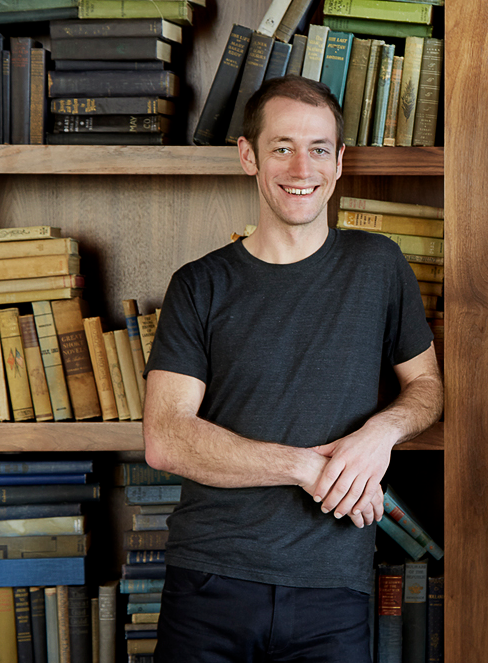Star Apps: Lumosity's Michael Scanlon
Michael Scanlon is the science behind Lumosity. The co-founder and chief scientific officer is an expert in cognitive training and neuroplasticity. He created the Human Cognition Project, which enables large-scale study of cognitive training in humans and oversees research collaborations in over 150 labs at prestigious universities, including Stanford and Harvard. I chatted with the Princeton and Stanford alum and researcher about the family health crisis that inspired his work, the science behind the "gym for your brain," his favorite mental exercise, the long-awaited Android version of Lumosity, and his favorite apps.

Lumosity's Co-Founder and CSO Michael Scanlon
(Credit: Matthew Millman)
Would you tell us about your professional background and how you landed your current role?
I first became interested in neuroscience in college when I realized how little we knew about the brain. Around that time, both of my grandmothers were diagnosed with Alzheimer's disease, which further motivated my interests, and I began a neuroscience PhD program at Stanford University. I studied neuroplasticity and how learning in different environments can affect brain structure and function. I, along with my co-founders, wanted to take findings out of the lab and create a program with real-world applications, and this idea ended up becoming Lumosity.
What were some of your earliest interactions with games? Were you a big gamer as a kid?
Video games were not allowed in our house growing up, but I've always loved sports. I think the mix of training and play in competitive sports has offered a useful perspective for designing cognitive training exercises.
What inspired the development of Lumosity?
My college friend (and now CEO of Lumosity) Kunal Sarkar was working at a private equity firm in Palo Alto that invested in the gym chain 24 Hour Fitness at the same time I was in the neuroscience PhD program at Stanford. We realized that, in the intersection of our two fields, there was a real-life application and opportunity to create a new product that could help people challenge their brains, in the same way we challenge our bodies with physical exercise. After two years of initial research and development, we launched Lumosity.com in 2007.
If you had to pitch Lumosity in a sentence or two, what would you say?
Lumosity is like a gym for your brain. We provide the tools and technology that allow anyone to challenge their core cognitive abilities from anywhere and at any time.
Which game (or games) are you the most proud of?
I have a personal attachment to Birdwatching. That was the first game we ever made, so we confronted a lot of challenges and design decisions for the first time. I even learned how to code to develop it. I'm most proud, though, of our current team's ability to create high-quality cognitive-training games. It's a unique challenge to combine cognitive science with gaming.
Can you break down the science behind Lumosity for our readers?
The Lumosity training program exposes your brain to gradually increasing levels of challenges, adapting game difficulty to your individual ability level. Lumosity games are based on a combination of common neuropsychological and cognitive tasks, many of which have been used in research for decades, and new tasks designed by an in-house science team. We took these tasks and transformed them into 40 challenging, adaptive games.
Out of Speed, Memory, Attention, Flexibility, and Problem Solving, which has been your greatest challenge?
Definitely memory.
When someone applies for a position at Lumosity, do you take their BPI into consideration?
We don't use BPI as part of our hiring process, but some organizations have expressed interest in using Lumosity's brain test assessments. We've also heard anecdotes from Lumosity users who write in to customer service, telling us that they've included their Lumosity stats on a job application, which helped them land a job.
When is the Android version coming out, and when will Lumosity be more cross-functional between iPhones, iPads, and laptops?
Android will launch in the first half of this year. Cross-functionality and connectedness is a major focus for us in 2014, and we plan to build features that leverage the strengths of each platform.
I've personally heard a lot of people call Lumosity "Luminosity." Does that pose a problem?
This is a very common mistake, but it does not seem to have impacted the business. And as our visibility grows, our users correct one another, so the problem is actually getting smaller.
Have you ever used competing brain-training apps, and did you find any of them compelling?
I've looked at a few online, and though some seem interesting, I haven't spent significant time with any.
What are your top five mobile apps besides Lumosity?
1. Strava
2. SoundCloud
3. GrubHub
4. Yelp
5. Uber

